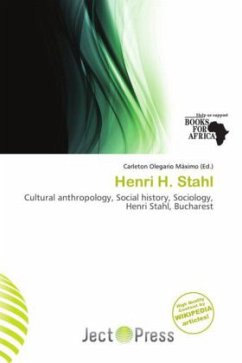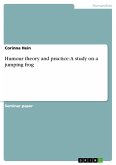Please note that the content of this book primarily consists of articles available from Wikipedia or other free sources online. Henri H. Stahl (also known as Henry H. Stahl or H. H. Stahl; 1901 September 9, 1991) was a Romanian Marxist cultural anthropologist, ethnographer, sociologist, and social historian. Born in Bucharest to a family of Alsatian and French-Swiss ancestry, he was the son of Henri Stahl (a promoter of stenography), as well as the younger brother of the sociologist and Social Democratic Party activist erban Voinea, and of the novelist Henriette Yvonne Stahl. He was married to Margareta, a known painter. After completing law studies and being awarded a doctorate, Stahl became interested in the work of Dimitrie Gusti, and was consequently one of his most prominent collaborators. Joining the staff of the Department of Sociology, Ethics, Politics and Aesthetics at the University of Bucharest's Faculty of Letters and Philosophy (where he later became a professor emeritus), Stahl first assisted Gusti and Gheorghe Vl descu-R coasa in the vast interdisciplinary enterprise of creating monographs dedicated to Romanian villages. In 1936, Gusti and Stahl, together with Victor Ion Popa, established the Bucharest Village Museum.
Bitte wählen Sie Ihr Anliegen aus.
Rechnungen
Retourenschein anfordern
Bestellstatus
Storno








